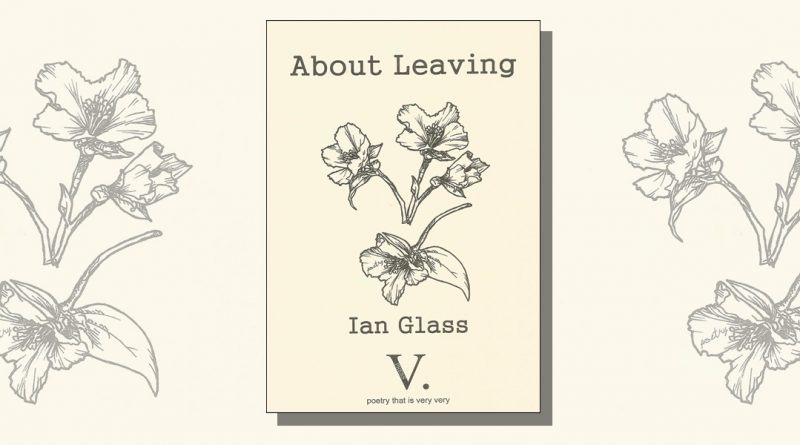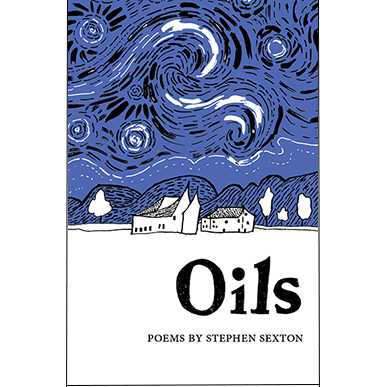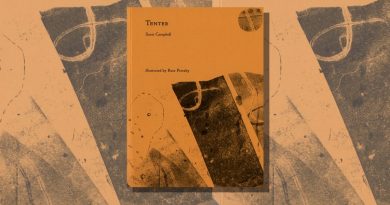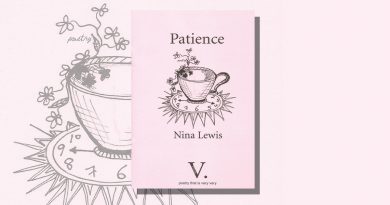About Leaving by Ian Glass
-Reviewed by Stephen Payne-
We learn from the biography that Ian Glass began writing poetry when his wife left the family home; she died five years later. All the poems in this pamphlet are about these events, in one way or another. Such a background can be inhibiting for a poetry reviewer, or at least this one. I’m sorry for your trouble, Mr Glass, but let me consider your line breaks. Nevertheless, there’s a job to be done here.
There are 22 poems, arranged into two sections. I think the order is roughly chronological, with the first poems concerned with the two key events, and the second section about the aftermath and its adjustments. But more particularly and accurately, the principle is linguistic. The poems in the first section are addressed to the wife, and the section’s final poem, ‘Change of Pronoun’ announces the shift. Perhaps also, in its use of language itself as a symbol, ‘Change of Pronoun’ is an expression of the centrality of poetry in Glass’s grieving process:
It took me twenty years to let you go.
Twenty years to understand
what you meant
and speak instead of she
or wife.
How neat is that second sentence — the double meaning of “what you meant”, so splendidly allowed and pointed-to by the syntax and the line breaks. (There you go, I’ve done it after all.)
In terms of chronology, the very first poem is out of synch, as it were, although I think it’s well placed. ‘This year’ describes a bird box on a tree where “moss has grown/on the cold side”:
the box you requested,
which I fixed with carpet tacks
because I would not find screws.
“Would”, not “could”: an insight into the relationship in a single choice of letter; perhaps a small confession.
It is such details of syntax and diction that are a key strength in this collection. The poems are plain on the surface, letting the emotional intensity of the events and responses they describe come through unembarrassed by poetic expression, aided by care and attention.
The second and third poems are the only poems in the book through which readers are given some hints about the particulars of the family breakdown, its immediate medical precursors. These are disconcerting, although tender.
‘Absent’ begins:
I understand why
our children are worried.
They have not been to school,
and you won’t get out of bed.
And the next poem, adding detail is ‘Concerning the Voices you Hear’:
To you, the voices are real.
More certain than me,
the husband you called to your room.
See again the clarity and directness of the writing. ‘Absent’ is in fact a pantoum, so its clarity, preserved throughout its length, is a mark of skill as well as disposition. Likewise, later, ‘In a Quiet Room’, is a good ghazal, and I’m especially touched when it turns, in the final couplet to address its author: “Ian, it’s time to walk away:/ close the door on the quiet room.”
It’s not always that I’m as certain about the ends of Glass’s poems as I am about the beginnings. Once or twice I wonder if there’s a slight over-reach for emotion when the deal, for me, was already sealed. ‘Galvanised’ is an example, which describes a “good bucket”, a survivor like the author, sharing what has persisted. It begins “This old bucket has hunkered/ upside down in the garden/ since I owned this house.” which I find well judged. It ends with “Pick it up, turn it over;/ feel it start to fill with rain.”
It would leave a false impression, however, if I ended this review on a negative. I enjoy poetry when it makes me feel in sympathy with the author. When the final, title poem, tells us “The kitchen door won’t shut completely./ A new warmth has twisted the wood/ and it no longer fits the frame” I find myself wishing Glass well with the repairs, and glad to learn about the warmth.





